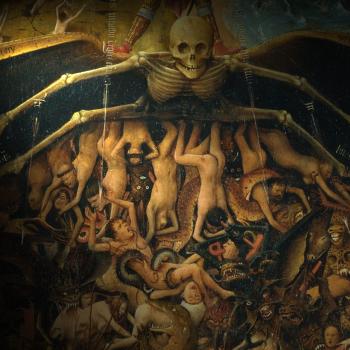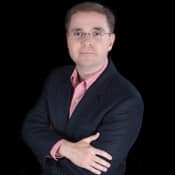There goes a woman who, be her demerits what they may, hath none of that mystery of hidden sinfulness which you deem so grievous to be borne. Is Hester Prynne the less miserable, think you, for that scarlet letter on her breast? ~ Roger Chillingworth, The Scarlet Letter
The fulcrum of Christianity turns on the notion that something must happen to a person in order for him to rightly describe himself as a Christian. In the words of Rev. Billy Graham, "No one is born a Christian—a Christian is born again." The very concept of conversion often falls into disrepute due to the multitude of seemingly false conversions to all sorts of strange teachings and lapses from reality by Elmer Gantryesque characters who seem downright phony in their newfound existence.
Modern forums that are convened to discuss various faith traditions find difficulty (and often blatant offense) in the concept of Christian conversion because a certain lack must be admitted as the prerequisite for apprehension of a key doctrine of Christianity: original sin. All human beings—regardless of social status, wealth, or personal ability—are hopelessly trapped in a downward spiral that will ultimately deliver them to death as cunning rebels against God.
Being "born again" took on modern significance when Charles Wendell Colson penned his 1975 memoir following his release from prison using those two words as his title. The book is part testimony and part theological forensics, as Colson's trained legal mind attempts to describe in factual statements based on evidence what exactly took place in his consciousness when he was "born again." At its heart, the book serves as an admission of guilt—not just of crimes associated with the Watergate scandal, but of a condition of the heart rooted in human pride. In the words of C.S. Lewis, pride was the "spiritual cancer" that had eaten away Colson's capacity for "love, contentment, and common sense." Yet, as one born again, Colson gave evidence now of just the opposite.
When public policy matters turned political, Colson was President Richard Milhous Nixon's man to execute his wishes and get the job done, no matter how messy it might become. Colson guided conversations in the Oval Office with the President of the United States, and his skill as a political strategist stands forever embedded in the annals of the American Presidency. He made it his personal ambition to see that absolutely no one would stand in opposition to the President's agenda, and he was one of the first modern political operatives to understand that it was quite easy to secure the hearts and minds of the American people when members of the U.S. Congress were trapped in the vice-grip of brutish partisan tactics.
The inner circle of Nixon's White House staff was a crew to make Machiavelli blush. The political fusion of White House Chief of Staff H.R. Haldeman, John Ehrlichman, and Colson created a culture of fear that became toxic as Nixon sought to remake the Executive branch into a place where might was not only right, but loyalty to the cause (that cause being Nixon himself) was the chief virtue among what some consider one of the most corrupt White House staffs ever to inhabit the West Wing.
People don't normally find themselves working near the Oval Office simply because they are charming or owed a political favor. The White House staff is an assembly of talent convened by their proven ability to function well in an openly hostile environment. Sustained success in a job that reports directly to the President demands an understanding of human sinfulness (though it might not be articulated as such) that transcends the pleasantries of daily life. At that level, power and access must be maintained or else it will be lost to clever minds capable of more surreptitious behavior because everyone in the inner circle desires to remain in the inner circle.
When the Nixon administration collapsed, however, the fallout was swift and substantial. Colson soon was confronted by a grand jury that questioned him with an intensity so fierce that he described it as one of the most difficult experiences of his life. He was hauled before Senate committees that exposed his actions before millions of Americans on live television. The man who once stood at the pinnacle of power was dragged down and stripped of everything that once marked him as a person of prestige and influence.
News of his later conversion to Jesus Christ prompted widespread criticism. Many assumed it was all an act—a convenient ruse to excuse his past behavior and grant him easy forgiveness for his ruthless and scandalous abuses of power. Yet, after his entrance into prison, he was visibly shaken as he realized he was now a mere number with nothing left but a tarnished identity built on the sands of political expediency. Broken, he discovered in prison a reality that found form in the ministries he would later establish.





